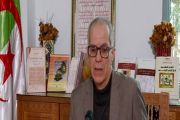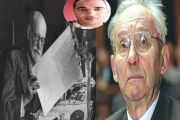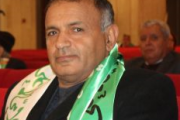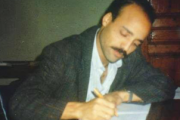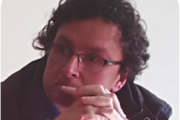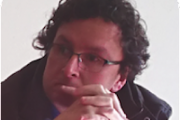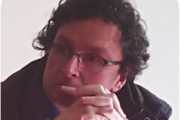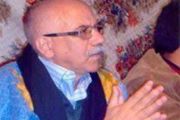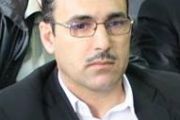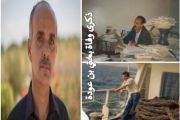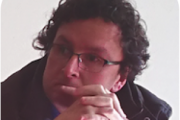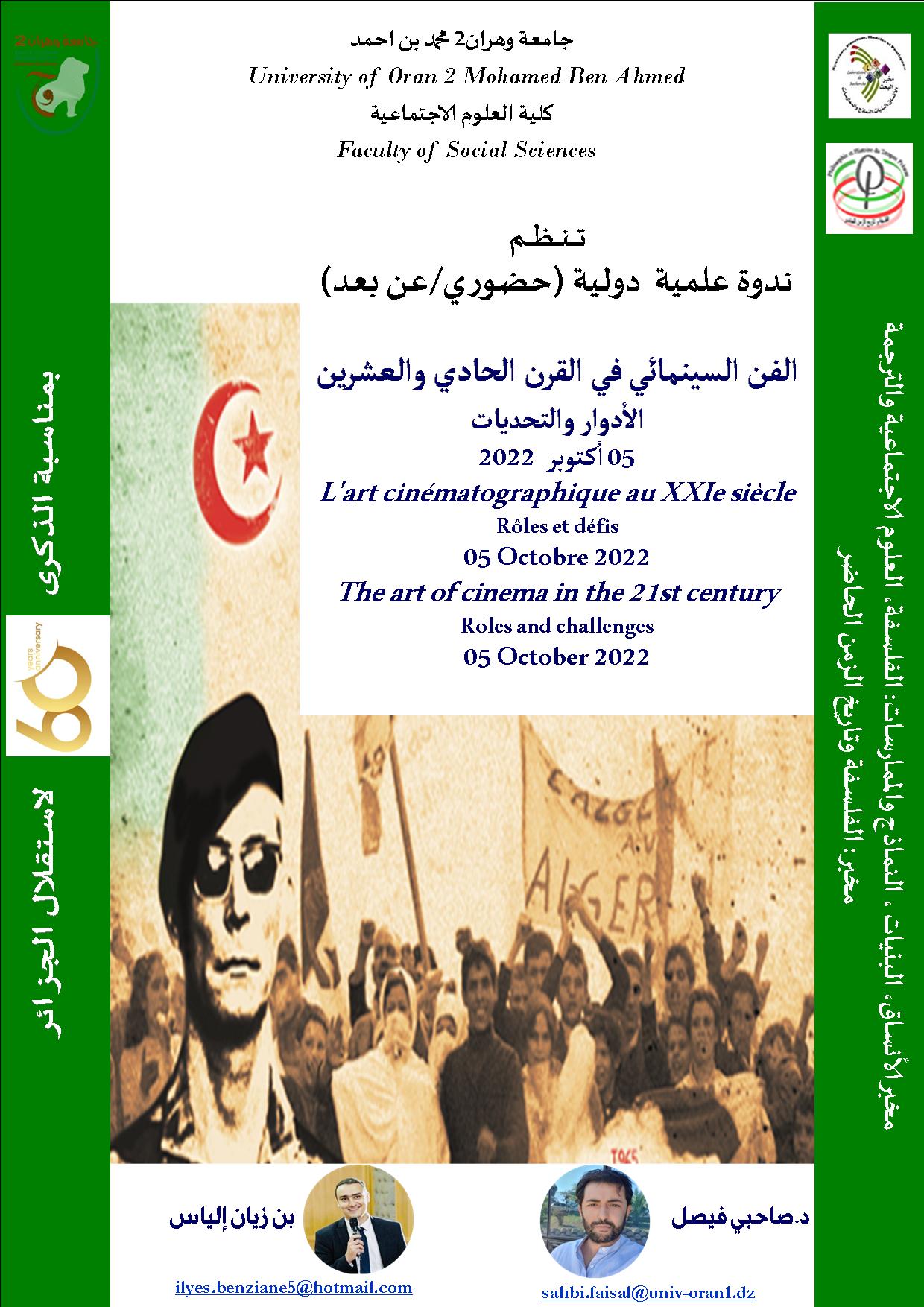
ندوة دولية: الفن السينمائي في القرن الواحد والعشرين - الأدوار والتحديات
ندوة دولية حول :
الفن السينمائي في القرن الواحد والعشرين - الأدوار والتحديات
يوم 05 أكتوبر 2022
رئيس اللجنة العلمية: بن زيان إلياس/ د.صاحبي فيصل
ترسل المشاركة إلى البريد الالكتروني المرفق
عنوان البريد الإلكتروني هذا محمي من روبوتات السبام. يجب عليك تفعيل الجافاسكربت لرؤيته. / عنوان البريد الإلكتروني هذا محمي من روبوتات السبام. يجب عليك تفعيل الجافاسكربت لرؤيته.
الفن السينمائي في القرن الواحد والعشرين - الأدوار والتحديات
ديباجة:
لا يكمن الهدف الأسمى للفن في مجرد التأثير، عبر الصورة أو الصوت أو كلاهما، بل في كون الفن نفسه أحد أنماط التفكير، على غرار الفلسفة مثلا. أن نفكّر فلسفيا يعني أن نفكّر في الممكن، وفي هذا يشترك الفن مع الفلسفة، لأن سموّه يجعل منه يتجاوز مرحلة نقل الوقائع وقولها في صور ملموسة للتفكير في الممكنات، فبعدما يتأسس، سلفا، على استذكار الماضي نجده يطمح لاستباق ما قد قد يحدثُ. وأن يفكّر الفن في القادم والقدوم l'avènement أمر ينبثق من الانشغال بالحدث l'évènement والتولّد، ضرورة، من الماضي، وكأن الفن والسينما تحديدا هي الشاشة التي يمكن عبرها حكيُ الفكرة من خلال العودة إلى تاريخ كل شيء في تشابك زمني تتجسد فيه كل الأفكار وتحضر فيه كل الشخصيات وتُلعَبُ فيه كل الأدوار، بدءاً من السياسة والاقتصاد والمجتمع وصولا إلى الأشغال اليدوية والرياضة وألعاب القوى، بدون نسيان قيادة الحروب وتوجيهها عن طريق السينما، بل صارت الحروب نفسها لا تحدث سوى عبر الكاميرا لتحدث هلعا عالميا لتحقيق مآرب الدول المتحكمة في دواليب القيادة الكونية، فقط لأجل نقل فكرة بعينها ويتحقق نقل الأمر من الفكرة إلى الواقع، وكأننا بصدد الحديث عن نوع من البراكسيس الفني الجاحد بدين الفكرة المجردة. هكذا تصير السينما فكرة ممكنة...
“السينما هي أهم الفنون بالنسبة لنا." يلخص هذا الاقتباس من لينين تمامًا المكانة الراجحة التي تمنحها بعض الحكومات لصناعة السينما، حيث تعتبرها أداة حاسمة وأساسية لزيادة الوعي، أو نقل أيديولوجية أو حتى الترويج لمنطقة سياحية.
لذلك، من الضروري التساؤل حول قضية مكانة، وأدوار وتحديات الميدان السينمائي بكافة جوانبه. هل يكمن هذا الأخير فكرة؟ أم حقيقة تم التقاطها على الصورة؟ أم أنه أكثر من ذلك بكثير؟
بالتالي، تهدف هذه الندوة إلى التركيز والتعمق بشكل خاص في مختلف الجوانب المتعلقة بالتحليل السينمائي، وذلك بهدف معرفة كيف يمكن استخدام هذا الفن حاليا كانعكاس حقيقي لعالمنا اليوم، وكيف يمكن أيضا اللجوء إلى هذا الأخير لتوعية الرأي العام وكذلك المخيال الاجتماعي، حول القضايا الحالية الأكثر حساسية، سواء كان ذلك في المجال الاجتماعي، أو الديني أو السياسي.
ينظم هذا الملتقى في إطار الاحتفاليات بمناسبة انقضاء 60 سنة على استقلال الجزائر
المحاور :
- السينما من الجانب النظري
- السينما من وجهة نظر المشرع القانوني
- الصناعة السينمائية في الجزائر (الاقتصاد، الوظيفة، النموذج الاقتصادي)
- المجتمع في مرآة السينما الجزائرية
- مسألة الهوية في السينما الجزائرية
استمارة المشاركة
الاسم واللقب.........الوظيفة / الرتبة ..................... التخصص .....................المؤسسة الأصلية (الجامعة)....................
مخبر الانتماء إن وجد........................ الهاتف ..................البريد الاكتروني الخاص/أو المهني..........................................
محور المداخلة .................................عنوان المداخلة ...........................الملخص (200/150 كلمة)............................
شروط كتابة المقال
- الموضوع راهني/جديد / يتسم بالأصالة / لم يسبق نشره / أو المشاركة به سابقا / لا تقبل المشاركة الثنائية
مواعيد هامة
إرسال المشاركة ابتداء من تاريخ (04 ماي 2022 إلى غاية 20 ماي2022)
عنوان البريد الإلكتروني هذا محمي من روبوتات السبام. يجب عليك تفعيل الجافاسكربت لرؤيته. / عنوان البريد الإلكتروني هذا محمي من روبوتات السبام. يجب عليك تفعيل الجافاسكربت لرؤيته.
يتم الرد آليا على الملخص
إرسال المقال مباشرة بالنسبة للمشاركين الحاصلين على القبول
- 30 جوان 2022 آخر أجل لاستقبال المقالات
L'art cinématographique au XXIe siècle -Rôles et défis
Préambule :
Le but ultime de l'art n'est pas seulement d'influencer par l'image ou le son, ou les deux, mais plutôt que l'art, lui-même, reste une forme à part entière de mode de pensée, comme la philosophie, par exemple. Penser philosophiquement signifie penser au possible, et dans ce cadre précis, l’art se rapproche beaucoup de la philosophie, car cette dernière le fait transcender l'étape de seulement transmettre des faits et de les raconter en images concrètes, pour finalement penser aux possibles.
Après s'être appuyé, au départ, sur le souvenir du passé, on constate désormais que le cinéma aspire à anticiper ce qui pourrait advenir, et que l'art pense à l'avènement, chose qui relève de la préoccupation de l'événement et de la génération, qui demeure une nécessité du passé, comme si l'art, et le cinéma en particulier, étaient l'écran à travers lequel l'idée peut être racontée, en revenant sur l'histoire de l’humanité, dans un enchevêtrement temporel où toutes les idées s'incarnent et se fréquentent entre elles, et où tous les personnages et tous les rôles s'y jouent, allant de la politique, l'économie et la société jusqu'à l'artisanat, le sport et l'athlétisme, sans oublier les guerres menées et dirigées à travers le cinéma.
En effet, les guerres elles-mêmes ne se produisent de nos jours qu'à travers la caméra, et ce dans le but de provoquer une panique mondiale afin d'atteindre les objectifs des pays contrôlant les rouages du leadership mondial, uniquement pour transmettre une idée particulière, et c’est ainsi que l’idée se transforme en réalité, comme s'il s'agissait d'une sorte de Praxis artistique qui nie la religion de l'idée abstraite. C'est ainsi que le cinéma devient une idée possible...
« Le cinéma est pour nous, de tous les arts, le plus important. » Cette citation de Lénine résume parfaitement la place prépondérante que certains gouvernements accordent à l'industrie cinématographique, le voyant comme un outil crucial et essentiel pour sensibiliser, transmettre une idéologie ou encore promouvoir une destination touristique. Dès lors, il faut s'interroger sur la question du statut, des rôles et des enjeux du champ cinématographique sous tous ses aspects. Ce dernier est-il une idée ? Ou une vérité capturée sur écran ? Ou est-ce bien plus que cela ? Ainsi, ce colloque vise à s’approfondir davantage sur les différents aspects liés à l'analyse cinématographique, dans le but de savoir comment cet art peut actuellement être utilisé tel un véritable reflet de notre monde d'aujourd'hui, et comment on pourrait avoir recours à ce dernier pour éduquer l'opinion publique, ainsi que l'imaginaire social, sur les questions d'actualité les plus sensibles, que cela soit dans la sphère sociale, religieuse ou politique.
Ce forum est organisé dans le cadre des célébrations marquant le 60ème anniversaire de l'indépendance de l'Algérie
Axes de travail :
- Le cinéma dans son aspect théorique
- Le cinéma du point de vue du législateur
- L’industrie cinématographique en Algérie (économie, emploi, modèle économique)
- La société au miroir du cinéma Algérien
- La question de l'identité dans le cinéma Algérien
Formulaire d’inscription
Nom / Prénom ……Fonction / Grade..........Spécialité ..............Organisation originale (Université)
Laboratoire d’affiliation (le cas échéant)................Tel .........E-mail personnel/ professionnel
Axe d’intervention..........L’intitule d’intervention ...........Résume ( 150/200Mots)
Conditions de la rédaction de l’article
–le sujet est nouveau/original/n’a pas été publié Ou à y participer avant Participation bilatérale n’est pas accepter
عنوان البريد الإلكتروني هذا محمي من روبوتات السبام. يجب عليك تفعيل الجافاسكربت لرؤيته. / عنوان البريد الإلكتروني هذا محمي من روبوتات السبام. يجب عليك تفعيل الجافاسكربت لرؤيته.
Dates importantes
- L’envoi de participation à partir de (04/05/2022 au 20/05/2022) Réponse au résume automatiquement
- Soumission d’articles directement pour les participants acceptés
-Le 30 juin est le dernier jour pour recevoir les articles.
The art of cinema in the 21st century -Roles and challenges
Preamble:
The ultimate goal of art is not just to influence through image or sound, or both, but rather that art, itself, remains a form of thought in its own way, as philosophy, for example. To think philosophically means to think of the possible, and in this precise context, art is very close to philosophy, because the latter makes it transcend the stage of only transmitting facts and telling them through concrete images, to finally think of the possible.
After relying initially on the memory of the past, we now see that cinema aspires to anticipate what could happen in a near future, and that art thinks about the advent, something that comes under the concern of the event, and generation, which remains a necessity of the past, as if art, and cinema in particular, were the screen through which the idea can be told, returning to the history of humanity, in a temporal entanglement where all ideas are embodied and frequent each other, and where all the characters and all the roles are played out there, ranging from politics, economy and society, to crafts, sport and athletics, not forgetting the wars waged and directed through cinema.
Indeed, wars themselves are happening nowadays only through the camera, and this in order to cause a global panic aiming to achieve the goals of the countries controlling the wheels of world leadership, only to convey a particular idea, and this is how the idea is transformed into reality, as if it were a kind of artistic Praxis which denies the religion of the abstract idea. This is how cinema becomes a possible idea...
“Cinema is for us, of all the arts, the most important.” This quote from Lenin perfectly sums up the preponderant place that some governments give to the film industry, seeing it as a crucial and essential tool for raising awareness, transmitting an ideology or even promoting a tourist destination. Therefore, it is necessary to focus on the question of the status, the roles and the stakes of the cinematographic field in all its aspects. Is the latter an idea? Or a truth captured on screen? Or is it much more than that? Thus, this symposium aims to go deeper into the different aspects related to cinematographic analysis, with the aim of discovering how this art can currently be used as a true reflection of our world today, and how we could use the latter to educate public opinion, as well as the social imaginary, on the most sensitive current topics, whether in the social, religious or political sphere.
This forum is organized as part of the celebrations marking the 60th anniversary of the independence of Algeria
Working axes:
- Cinema in its theoretical aspect
- The cinema from the point of view of the legislator
- The film industry in Algeria (economy, employment, economic model)
- Society in the mirror of Algerian cinema
- The question of identity in Algerian cinema
Participation form
First and Familly name…………...Post/level…………..Specialization……...Original Organization (University)
Affiliation Laboratory if available…………..Phone………..Personal/professional email………………………...
Intervention axis..............................Titel of the intervention………………...Summary
Conditions of writing the article
The subject is new/original/has not been published Or to participate before Bilateral participation is not acceptable
عنوان البريد الإلكتروني هذا محمي من روبوتات السبام. يجب عليك تفعيل الجافاسكربت لرؤيته. / عنوان البريد الإلكتروني هذا محمي من روبوتات السبام. يجب عليك تفعيل الجافاسكربت لرؤيته.
Important Dates
- The sending of participation from (04/05/2022 to 20/05/2022)
-The summary is automatically answered -Send the article directly to the accepted participants
-Submitting articles for the accepted participants
- Last day to receive articles. 30/06/2022
- التفاصيل
- كتب بواسطة: مسير الموقع
- انشأ بتاريخ: 02 ماي 2022

